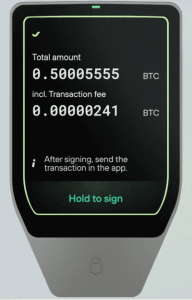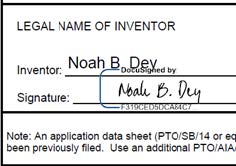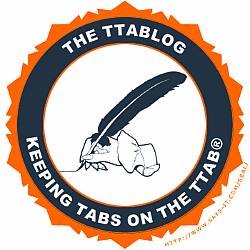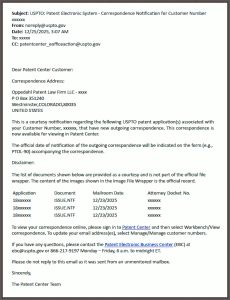 Day-to-day users of Patent Center are accustomed to the USPTO’s requirement that you provide two-factor authentication (“2FA”) as part of the login process. It turns out that you may be able to use your cryptocurrency hardware wallet as your 2FA at the USPTO. This blog article explains how to do it. Continue reading “Maybe you have not used this kind of two-factor authentication for Patent Center?”
Day-to-day users of Patent Center are accustomed to the USPTO’s requirement that you provide two-factor authentication (“2FA”) as part of the login process. It turns out that you may be able to use your cryptocurrency hardware wallet as your 2FA at the USPTO. This blog article explains how to do it. Continue reading “Maybe you have not used this kind of two-factor authentication for Patent Center?”
USPTO backdates outgoing correspondence
The listservs are broken
(Update on December 30, 2025. The listservs seem to be back in service, see blog posting.)
(Update on December 29, 2025. Today I have spent around eight hours arm-wrestling with Namecheap tech support people, working on the migration of the listservs from a “shared hosting” server to a “virtual private server”. It has been exhausting. I think there is a chance that progress has been made. I will update this posting if I see more progress.)
The executive summary is: the listservs are broken. I am working on getting them back into service. Continue reading “The listservs are broken”
Which commercial e-signature platforms does the USPTO recognize?
 On March 22, 2024 the USPTO published a Federal Register Notice saying that the USPTO would start accepting electronic signatures generated by some commercial e-signature platforms without any requirement that virgules (forward slashes) be incorporated into the e-signature. You can see, at right, an e-signature generated by one particular commercial e-signature platform. If you were to e-file the document quoted at right, would the USPTO bounce it or accept it? In this blog article I discuss in detail the various USPTO communications to try to work out the answer. Spoiler alert — it turns out to be impossible to know what the USPTO will and will not accept. Bigger spoiler alert — one assumes that TYFNIL this will be a fertile area for summary judgment practice and the like. Continue reading “Which commercial e-signature platforms does the USPTO recognize?”
On March 22, 2024 the USPTO published a Federal Register Notice saying that the USPTO would start accepting electronic signatures generated by some commercial e-signature platforms without any requirement that virgules (forward slashes) be incorporated into the e-signature. You can see, at right, an e-signature generated by one particular commercial e-signature platform. If you were to e-file the document quoted at right, would the USPTO bounce it or accept it? In this blog article I discuss in detail the various USPTO communications to try to work out the answer. Spoiler alert — it turns out to be impossible to know what the USPTO will and will not accept. Bigger spoiler alert — one assumes that TYFNIL this will be a fertile area for summary judgment practice and the like. Continue reading “Which commercial e-signature platforms does the USPTO recognize?”
Learning to guess outcomes of appeals of 2d refusals
 Thanks to John L. Welch’s hundreds of blog articles about 2d refusals, I have gotten to the point where sometimes I can guess correctly the outcome of an ex parte appeal of a 2d refusal. The alert reader might ask:
Thanks to John L. Welch’s hundreds of blog articles about 2d refusals, I have gotten to the point where sometimes I can guess correctly the outcome of an ex parte appeal of a 2d refusal. The alert reader might ask:
-
- What is a “2d refusal”?
- Why would it be interesting to try to guess “the outcome of an ex parte appeal of a 2d refusal”?
- How might it be that hundreds of blog articles by John L. Welch might lead to a situation in which sometimes I can guess the outcome of such an appeal?
- And, what can be said of John L. Welch’s extraordinary contributions to the trademark community through his blog? Continue reading “Learning to guess outcomes of appeals of 2d refusals”
Fifteen free-of-charge lectures about the Patent Cooperation Treaty
Starting four days from now, on Tuesday, November 25, 2025, I will be presenting fifteen lectures about the PCT. Thanks to sponsorship from WIPO, these lectures will be free of charge. For more information, or to register, click here.
It only took 45 years — CNN over-the-top and unbundled
 CNN launched on June 1, 1980. Only now, 45 years later, has CNN become available “over-the-top” and unbundled. Continue reading “It only took 45 years — CNN over-the-top and unbundled”
CNN launched on June 1, 1980. Only now, 45 years later, has CNN become available “over-the-top” and unbundled. Continue reading “It only took 45 years — CNN over-the-top and unbundled”
“ante-penultimate”
Thanks to Brian E. Hanlon, Assistant Commissioner for Patents at the USPTO, I learned a new word today:
antepenultimate.
Assistant Commissioner Hanlon recently published a memo dated October 24, 2025 entitled Advance notice of change to the MPEP with respect to false assertions or certifications of entity status. It contains these words:
The ante-penultimate and penultimate paragraphs in MPEP § 410 are revised to read …
Of course we all already knew what “penultimate” means, namely “second from the end”. Thanks to Mr. Hanlon, today I learned of the existence of “antepenultimate” which means “third from the end”. (The word is not actually hyphenated.)
It turns out that there are more words like this:
-
-
- “preantepenultimate” means “fourth from the end” and
- “propreantepenultimate” means “fifth from the end”.
-
Why all trademark practitioners need to know about BIMI
 Do you or your trademark client ever find that your outbound email to somebody ends up in their spam folder? Do you or your trademark client ever find that your outbound email to a recipient gets wrongly bounced as “suspected spam” or gets silently discarded by the recipient’s email service provider?
Do you or your trademark client ever find that your outbound email to somebody ends up in their spam folder? Do you or your trademark client ever find that your outbound email to a recipient gets wrongly bounced as “suspected spam” or gets silently discarded by the recipient’s email service provider?
There’s a chance that BIMI, which draws upon a registered trademark of the sender of an email message, might help a little with these problems. What is BIMI? What must an email sender do to get BIMI to work?
Continue reading “Why all trademark practitioners need to know about BIMI”
Detecting and locating lightning strikes

Loyal readers of this blog will recall (blog article) that I have constructed and have placed into service a station that detects a lightning strike and reports it to a crowd-sourced system that uses the report to determine where the lightning strike happened. Hundreds or thousands of times per day, my station detects a lightning strike and reports it to the crowd-sourced system.
The alert reader will surely wonder “how far away are these lightning strikes?” Today’s blog article answers this question, and it draws upon the screen shot that you see above. Continue reading “Detecting and locating lightning strikes”

